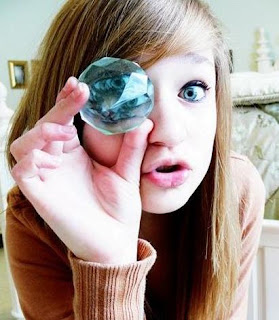Other Rooms
| Attic | People store things in the attic. |
| Ballroom | A room in stately homes where rich people dance and concerts are held. |
| Box Room | A small room used for storage. |
| Cellar | Underneath the house. |
| Cloakroom | A small room where people put their coats. |
| Conservatory | A greenhouse attached to a house for the display of plants. |
| Dining Room | A room where people eat. |
| Drawing Room | A room in stately homes where rich people entertain. |
| Games Room | A room in large houses where games are played. |
| Hall | The entrance passage to a house. |
| Larder | A small room used for the storage of food. |
| Library | A room where books are kept. |
| Lounge | Another name for living room. |
| Music Room | A room where people play music. |
| Office | A room where people work. |
| Pantry | A small room used to store kitchen and dining items. |
| Parlour | Old fashioned word for living room. |
| Sitting Room | Another name for living room. |
| Spare Room/ Guest Room | A room where guests sleep. |
| Toilet | A room where people go to the toilet (often known as WC) |
| Utility Room | A room where appliances such as washing machines are used. |
| light bulb(s) | plug(s) | socket(s) | torch(es) |
| ceiling light(s) | lamp(s) | curtain(s) | |
| shelf (shelves) | (tele)phone(s) | box(es) | |
| plug(s) | battery (batteries) | photo(graph)(s) |
Naturally Speaking
Click on the words to hear the pronunciation
Dialogue
Here is a conversation between Mrs Smith (Joan) and husband Steve.
| It’s Saturday and Joan and Steve are decorating. | |
| Joan | Steve, you missed a bit. |
| Steve | Where? |
| Joan | Here, on the wall just by the window, you can see a patch of white. |
| Steve | Oh yes, I see it. It’s difficult in this light. |
| Joan | I know, well at least we have finished this room, only five more to go. |
| Steve | Are you sure you want to put wallpaper up in the lounge? |
| Joan | Yes, but don’t worry, I’m really good at wallpapering. I just wish that John would decide on what he wants his room doing in. |
| Steve | I know, it’s difficult when you’re a boy. At least he’s grown out of Star Wars, I keep thinking he’ll ask for red and black or something equally gruesome. |
| Joan | Yes, but it is his room. I’m glad we decided not to move though. Maybe we should think about building an extension to the kitchen instead. |
| Steve | One thing at a time please! Lets get this decorating over and done with first. |
| Joan | Ha! Oh by the way you missed a bit by the door too! |
| Steve | Hmmm, thanks. Here’s a brush |























